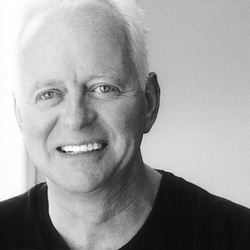Hans Hulsbosch is one of Australia’s most influential brand designers and the executive creative director at Hulsbosch – Communication by Design. Over the past 31 years, he has been involved in national rebranding and repositioning projects for Woolworths, Virgin Australia, Masters Home Improvement and national sports retailer, Rebel.
It’s not uncommon for brand discussions to veer towards murky digital territory where insights, research, analytics and data are assumed to be the salvation to all things brand.
As a corporate brand designer immersed in the branding issues and challenges faced by big business, I believe respite from the complexity of brand communications could be unravelled by talking to someone who actually creates brands as their day job.
We all know the deal. Identify the single most defining idea about your brand that has the weight to carry all marketing communications across select channels and in all manner of executions, with absolute conviction.
However, those of us in brand design also know getting to this point requires that ‘lightbulb moment’, propped and supported by strategy, insights and delivery. Add the intricacies of the consumer-brand relationship to the mix, and a desire for brands to expand into new territories, and it’s not surprising why so many brands go off the rails.
Today, marketers expect consumers to embrace brands in ways never previously considered. Meanwhile, consumers expect brands to transcend the purpose for which they were originally designed to satisfy. These consumer-brand relationships also morph along the way, each offering differing frequencies and types of interaction depending on the category. This brand game ain’t easy.
Consumer A writes a brief to Brand X: Stay true to your brand promises and values, demonstrate authenticity, engage with us emotionally, be environmentally sound, conduct your business with ethical and social accountability, and ensure you subscribe to a level of philanthropy to prove you really care. It’s a lot to take on yet there are plenty of brands out there firing on all cylinders.
So how then does a food brand step outside its core focus and successfully launch a range of clothing? How can a lifestyle brand rationalise expansion into solar power invertors and tankless water heaters?
The answer quite simply is this: As long as brand owners conduct their business with integrity, and stay true to their values, personality and code of ethics, then they can be as commercially creative as they damn well want. Just be clear on the above with some brand advice close by, before you start to stretch.
Marketers should be mindful of the leverage a brand stretch can give to brand engagement. If your brand can successfully preserve its values and truths from one embodiment to the next (such as from a hotdog purchase to a YouTube video), you give consumers sustained access to the brand experience across multiple and market relevant channels.
But take note: There’s a fine line between clever creative and brand dissolution.
Harley Davidson does it well; Abercrombie & Fitch, Nike and Apple are other strong examples of brands that have stuck to their core values and maintained integrity while expanding their creativity and product portfolios. Another, perhaps less well known case study, is Chipotle, the Mexican grill chain in the US, with 1,458 burritos restaurants across the country and a further 165 openings scheduled this year.
Chipotle (pron. Chee-POAT-lay) is on track to becoming a lifestyle brand as it moves into selling organic clothing and accessories for men, women, children and everyone in between.
The Chipotle brand case study offers marketers some common sense well worth listening to. The brand has remained true to its original intent of providing great products that use quality ingredients, evolving to offer the same promise across a sustainable fashion range. Its partnership with eco-fashion brand, Loomstate, works because Chipotle has identified a category that offers relevance and synergy to its target market, and its management team understands and actually practices what it preaches by empowering staff.
While Chipotle has cleverly married its dream to create the perfect burrito with a partner in sustainable fashion, what's even more telling is management’s loyalty to the brand’s value system and how this translates to recognition of its own people, and then how that internal brand engagement plays out externally.
And herein lies the morale of the story. When brands know what they’re trying to achieve from the outset, and have strategically defined who they are and to whom they’re talking, only then can they communicate their values cohesively, and act out their brand visions genuinely. Never stop asking questions along the way.
When they do this, powerful brand statements are made, and both brands and consumers find happiness.
Tags: brand insights








